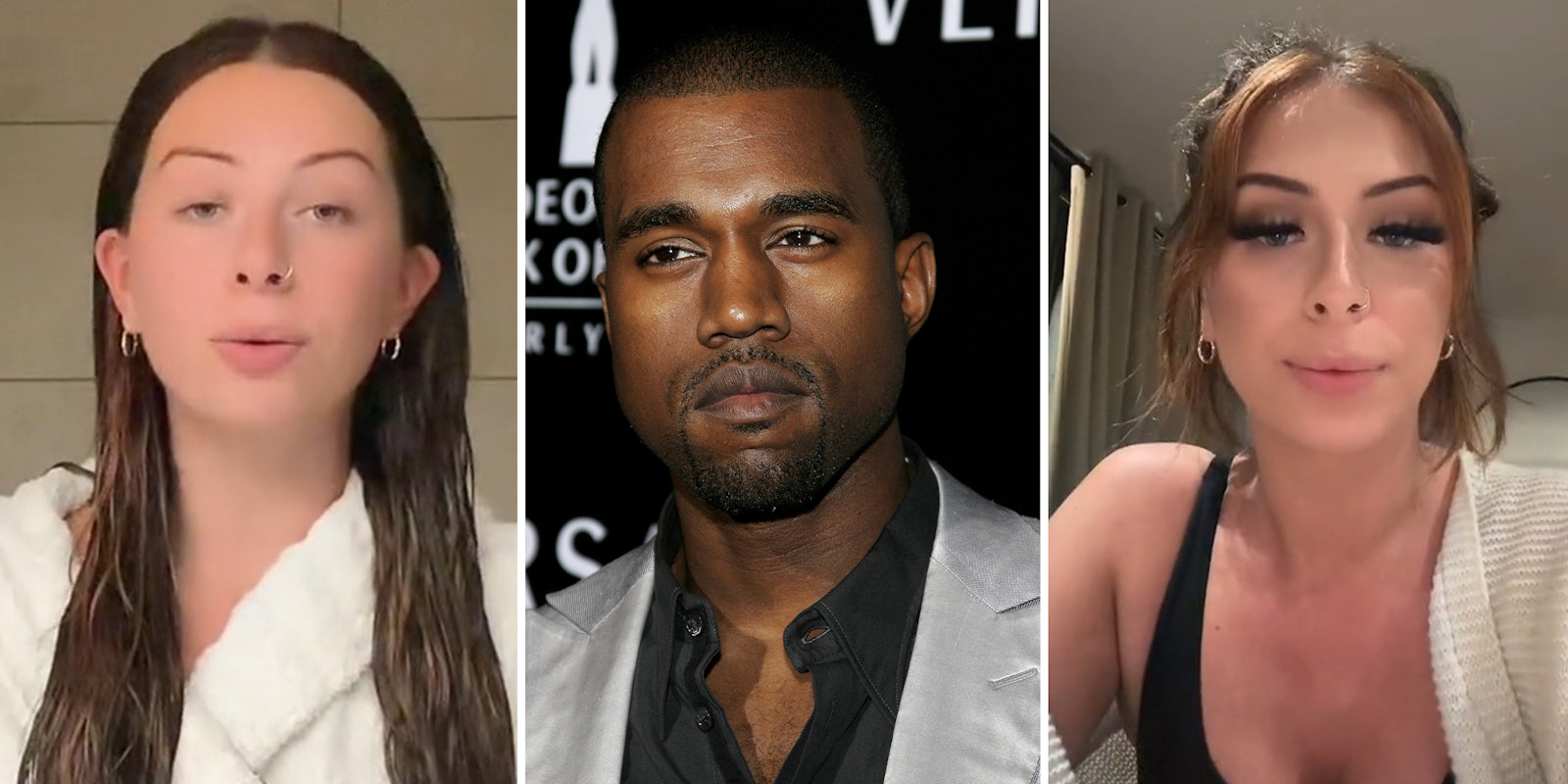During a live stream last month, TikToker Eden Harvey faced backlash for mouthing the N-word during Kanye West’s “Monster.”
Boasting 3.2 million followers, Harvey (@Edenharveyhulme), is no stranger to controversy, and she’s frequently been called out for her live stream behavior.
After the live stream gained traction on TikTok with stitches from other creators who levied criticism against Harvey, she released several apology videos.
The first has since had the sound removed, simply showing the caption “I am so sorry.” She has also turned off the comments on her videos, although her Instagram comments are still filled with a nearly equal mix of criticism and defense.
A video uploaded on Oct. 21 begins as she says, “So I haven’t slept properly for nearly 24 hours. It’s just been horrific.”
The topic quickly changes as she talks about an injury to her bum that she sustained when she was trying to relax in the bath.
On Oct. 22, she returned with yet another apology video, sitting in her car and staring wistfully out of the window in a video captioned “Sunday.”
“This Sunday is a Sunday of reflection because I’m just coming to terms with the fact that I don’t know if this can be my job anymore,” she says.
Other creators have criticized her apology for its self-pitying approach.
In a response video, Jaya Howard says, “She’s made a sob story for herself and said that she doesn’t want to stay online, and that is making her viewers … stand by her even more.”
Although the comments are turned off, screen recordings from the original upload show overwhelming support for Harvey in what many fans see as an honest mistake—an easy slip-up in the pressure of a live stream.
Harvey expressed similar concern over her actions, saying that in the four years she has been online, the N-word “never once has it even nearly” slipped out. She trails off before finishing the sentence.
As the apology video comes to an end, she says, “It’s not enough. I’m sorry every f*cking day. It’s not sustainable.”
But this is not the type of accountability that creators like Howard want to see from Harvey.
Howard’s criticism lies less with the slur used in the original live stream and more with the aftermath. She says Harvey failed to educate her viewers and let them relentlessly defend her in the comments of the often Black creators criticizing her behavior.
Howard adds in her video that Harvey “should educate her fans instead of making it a sob story where we all have to get our violins out for Eden again.”
Other creators have also expressed frustration with the constant need to hold Harvey accountable for things that result in little long-term change, as she has cultivated a strong fanbase that endlessly supports her.
In Harvey’s third and final apology on Oct. 22, she addresses this criticism.
“I completely understand that you’re fiercely loyal, and I love you so much for that, but it’s not OK, ever, to mime it, to sing it, to say it, never,” she says of the N-word. “I ask you, for the first time ever, don’t defend me because I just have to own this. There’s no defending miming that word.”
She also clarifies that her apology was not intended for her predominantly white female audience and instead was addressed to the Black community. “If you are white, my apology is not aimed at you,” she says.
Yet white creator Paige Brookes continues to attack the “pans[ies]” and “snowflake[s]” offended by Harvey’s live stream.
Brookes said, “It’s a song. It’s not that deep,” making a distinction between miming the song and using it as a slur.
She adds, “If they didn’t want people to sing that f*cking word they wouldn’t have put it in the song. I don’t care, I said what I said.”
@GUHDEHPHILLIP bluntly countered this in a video captioned, “It’s who you are,” in which he says, “You cannot say the n word at your big … age by mistake.”
Yet that seems to be the case for many of the people defending Harvey in the comments who openly admit to singing along to songs that contain the N-word.
Brookes says, “Why would it offend anyone because you’re singing it to yourself in a song?”
In a follow-up video, she adds, “Artists need to consider whether or not they’re going to continue using the word in their songs if this is what it’s going to cause,” as she disputes whether Black people are able to reclaim it in songs that target a mainstream audience.
Both Brookes and Harvey were eager to defend their characters. Brookes says she’s “The least racist person that exists,” while Harvey says, “I don’t have a racist bone in my body.”
In terms of accountability, Howard wants to see Harvey educating her viewers—and see creators like Brookes step out of the discussion.
“You don’t have a pedestal to speak about Black people because you don’t have a right,” Howard says. “You are not Black.”
The criticism levied against Harvey is a reflection of the thousands of internet users fed up by her lack of accountability, as with each scandal she seems to bounce back.
Her impressionable, often young, audience fails to recognize the problematic content she so often posts and instead continues to defend her against the very communities that she harms, all of which Harvey profits off.
She’s become a sort of martyr for the types of creators who seem to have endless afterlives.
Last month, another now-deleted screen recording circulated in which Harvey seemed desperate to help children involved with the Make-a-Wish Foundation U.K. The video shows Harvey reaching out to the program multiple times.



